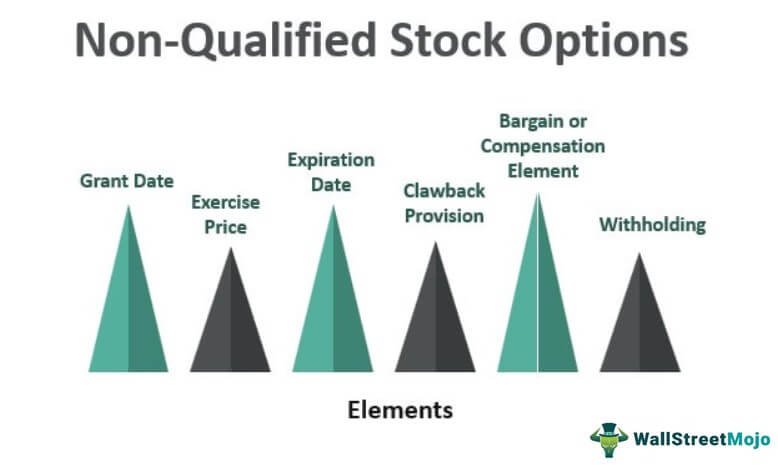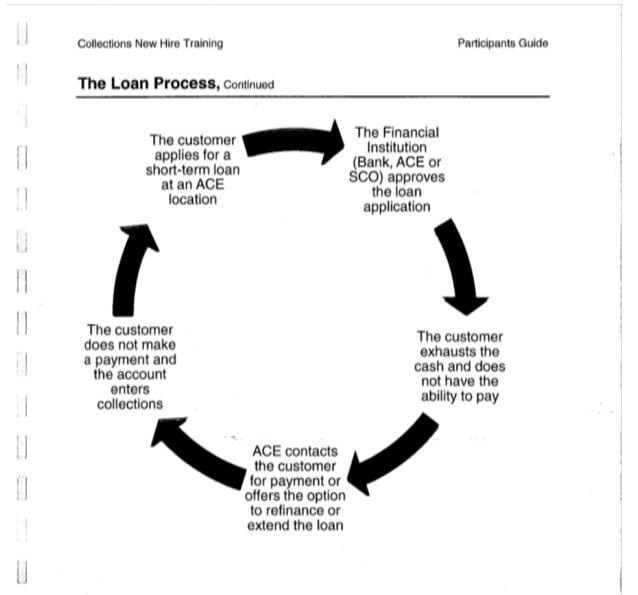If you’ve ever wondered “what is a non-qualified stock option?” then you’re in the right place. In this article, we’ll unravel the mysteries of non-qualified stock options and provide you with a clear understanding of how they work. Non-qualified stock options are a type of compensation often offered by companies to their employees. But what exactly are they, and how can they benefit you? Let’s dive in and explore this fascinating world of employee stock options together. Get ready to demystify non-qualified stock options and gain the knowledge you’ve been seeking.
What is a Non-Qualified Stock Option?
A non-qualified stock option (NSO), also known as a non-statutory stock option, is a type of stock option that grants employees the right to purchase company stock at a predetermined price, known as the exercise or strike price. NSOs are typically offered to employees, directors, and consultants as a form of compensation or incentive.
Unlike incentive stock options (ISOs), which have specific tax advantages and eligibility requirements, NSOs do not qualify for favorable tax treatment. This means that when employees exercise their options and buy company stock, they will be subject to ordinary income tax rates on the difference between the exercise price and the fair market value of the stock at the time of exercise.
How Non-Qualified Stock Options Work
When an employee is granted non-qualified stock options, they are typically given a specific vesting period, which is the period of time they must wait before they can exercise their options. Vesting can be based on a variety of factors, such as time with the company or achievement of performance goals.
Once the options have vested, the employee has the right to exercise them by purchasing company stock at the predetermined exercise price. The exercise price is usually set at the fair market value of the stock on the date of grant, but it can also be higher or lower depending on the company’s policies.
When the employee exercises their options, they will need to pay the exercise price to acquire the stock. The difference between the exercise price and the fair market value of the stock at the time of exercise is called the spread. This spread is subject to ordinary income tax at the employee’s applicable tax rate. The company may also withhold a portion of the stock to cover any tax obligations.
Example:
Let’s say an employee is granted 1,000 non-qualified stock options with an exercise price of $10 per share. After the options vest, the fair market value of the stock is $15 per share. If the employee exercises all their options, they would need to pay $10,000 (1,000 options x $10 exercise price) to acquire the stock.
The spread is calculated as the fair market value minus the exercise price, which in this case is $15 – $10 = $5 per share. So, the total spread would be $5,000 (1,000 options x $5 spread per share). The employee would be subject to ordinary income tax on this spread.
Tax Implications of Non-Qualified Stock Options
As mentioned earlier, non-qualified stock options do not receive the same tax treatment as incentive stock options. Here are some important tax implications to consider:
- Ordinary Income Tax: The spread between the exercise price and the fair market value of the stock is subject to ordinary income tax rates. The employee must include this amount as part of their taxable income in the year the options are exercised.
- Withholding and Reporting: Employers are generally required to withhold income taxes on the spread at the time of exercise. They must also report the spread as part of the employee’s wages on Form W-2.
- Capital Gains Tax: If the employee sells the stock acquired through NSOs, any further increase in value may be subject to capital gains tax. The capital gains tax rate will depend on the holding period of the stock.
Alternative Minimum Tax (AMT)
In addition to ordinary income tax, employees who exercise non-qualified stock options may also be subject to the alternative minimum tax (AMT). The AMT is a separate tax calculation that ensures taxpayers with certain deductions and credits still pay a minimum amount of tax. Exercising NSOs can trigger the AMT because the spread is included in the AMT calculation.
The AMT rules can be complex, and it’s advisable to consult with a tax professional to understand how it may apply to your specific situation.
Advantages of Non-Qualified Stock Options
Non-qualified stock options offer several benefits to both employees and employers:
- Flexibility: NSOs can be customized to meet the specific needs of the company and its employees. This flexibility allows employers to offer stock options to a broader range of individuals, including consultants and part-time employees.
- No Eligibility Requirements: Unlike incentive stock options, NSOs do not have strict eligibility requirements. Therefore, employers can grant options to any employee they choose, regardless of their position or ownership percentage.
- Motivational Tool: Non-qualified stock options can serve as a powerful motivational tool to attract and retain employees. By linking employee compensation to the performance and success of the company, NSOs align the interests of employees with those of the shareholders.
- Immediate Tax Deduction: Employers are generally allowed to take a tax deduction for the spread on NSOs as an ordinary business expense. This can help offset the cost of offering stock options.
Considerations for Employees
If you have been granted non-qualified stock options, it’s important to consider the following factors:
- Tax Planning: Understanding the tax implications of exercising NSOs is crucial. Consult with a tax professional to develop a tax planning strategy that helps minimize your tax liability.
- Diversification: Holding a significant amount of company stock can be risky. Consider diversifying your investment portfolio to reduce concentration risk.
- Expiration: Non-qualified stock options have an expiration date. If you don’t exercise your options before the expiration date, they will typically become worthless.
- Company Performance: The value of your stock options is tied to the performance of the company. Assess the company’s financial health and growth prospects before making decisions about exercising or holding your options.
Remember, individual circumstances can vary, and it’s important to seek professional advice tailored to your specific situation.
Non-qualified stock options are a common form of equity compensation that provide employees with the opportunity to purchase company stock at a predetermined price. While NSOs do not enjoy the same tax advantages as incentive stock options, they offer flexibility and customization options for employers.
Employees need to carefully consider the tax implications and other factors before exercising their options. Proper tax planning, diversification, and assessing the company’s performance are essential steps to make informed decisions about non-qualified stock options.
By understanding how NSOs work and their potential benefits, employees can take full advantage of this form of compensation and potentially enhance their financial well-being.
NSO explained – non qualified stock options – non statutory stock options
Frequently Asked Questions
Frequently Asked Questions (FAQs)
What is a non-qualified stock option?
A non-qualified stock option (NSO) is a type of stock option that is typically offered to employees as part of their compensation package. Unlike incentive stock options (ISOs), NSOs do not offer the same tax advantages and are subject to different tax treatment. NSOs are generally more flexible and can be granted to anyone, including employees, consultants, and directors.
How does a non-qualified stock option work?
When granted a non-qualified stock option, the recipient is given the right to purchase company stock at a predetermined price, known as the exercise price or strike price. The option usually has a vesting schedule, which is the period during which the employee must wait before exercising the option. Once vested, the employee can choose to exercise the option by purchasing the stock at the predetermined price.
What are the tax implications of non-qualified stock options?
When a non-qualified stock option is exercised, the employee is required to report the difference between the exercise price and the fair market value of the stock as ordinary income. This amount is subject to income tax, Medicare tax, and social security tax. The subsequent gain or loss from selling the stock is treated as a capital gain or loss.
Can anyone receive non-qualified stock options?
Yes, non-qualified stock options can be granted to employees, consultants, directors, and even non-employee service providers. The flexibility of NSOs allows companies to extend this type of compensation to a wider range of individuals.
Are non-qualified stock options transferable?
In most cases, non-qualified stock options are not transferable. They are usually granted with a non-transferability provision, meaning they cannot be sold, assigned, transferred, or gifted to another individual.
Can non-qualified stock options be exercised before they are fully vested?
Yes, non-qualified stock options can typically be exercised before they are fully vested. However, any shares acquired through early exercise may be subject to a repurchase right by the company if the employee leaves before the vesting period is complete.
What happens if I leave the company before exercising my non-qualified stock options?
If you leave the company before exercising your non-qualified stock options, you may lose the right to exercise them. Some companies have a specific timeframe for exercising options after termination, while others have restrictions that prevent exercising after leaving the company.
How are non-qualified stock options different from incentive stock options?
Non-qualified stock options differ from incentive stock options (ISOs) in several ways. NSOs do not have to meet specific IRS criteria, allowing companies more flexibility in their grant. NSOs are subject to ordinary income tax upon exercise, while ISOs may qualify for favorable tax treatment if certain conditions are met. Additionally, ISOs have maximum limits on annual grants and are limited to employees only, while NSOs have no such limitations.
Can non-qualified stock options be offered by start-up companies?
Yes, start-up companies can offer non-qualified stock options as a form of compensation to attract and retain talent. NSOs can provide a valuable incentive for employees to contribute to the success of the company and align their interests with the company’s long-term growth.
Final Thoughts
A non-qualified stock option is a type of stock option that is not eligible for the favorable tax treatment given to incentive stock options. Unlike incentive stock options, non-qualified stock options are more flexible in terms of who can receive them and how they can be exercised. These options are often used as a form of compensation for employees or as a way to attract and retain key talent. Non-qualified stock options provide the opportunity for employees to purchase company stock at a predetermined price, allowing them to potentially benefit from future stock price increases. Overall, understanding what a non-qualified stock option is can be beneficial for both employers and employees in leveraging their stock-based compensation plans effectively.



